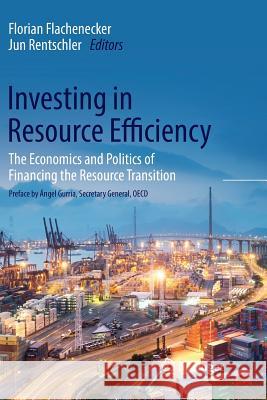Investing in Resource Efficiency: The Economics and Politics of Financing the Resource Transition » książka
topmenu
Investing in Resource Efficiency: The Economics and Politics of Financing the Resource Transition
ISBN-13: 9783030076689 / Angielski / Miękka / 2019 / 294 str.
Kategorie:
Kategorie BISAC:
Wydawca:
Springer
Język:
Angielski
ISBN-13:
9783030076689
Rok wydania:
2019
Wydanie:
Softcover Repri
Ilość stron:
294
Waga:
0.44 kg
Wymiary:
23.39 x 15.6 x 1.65
Oprawa:
Miękka
Wolumenów:
01
Dodatkowe informacje:
Wydanie ilustrowane











